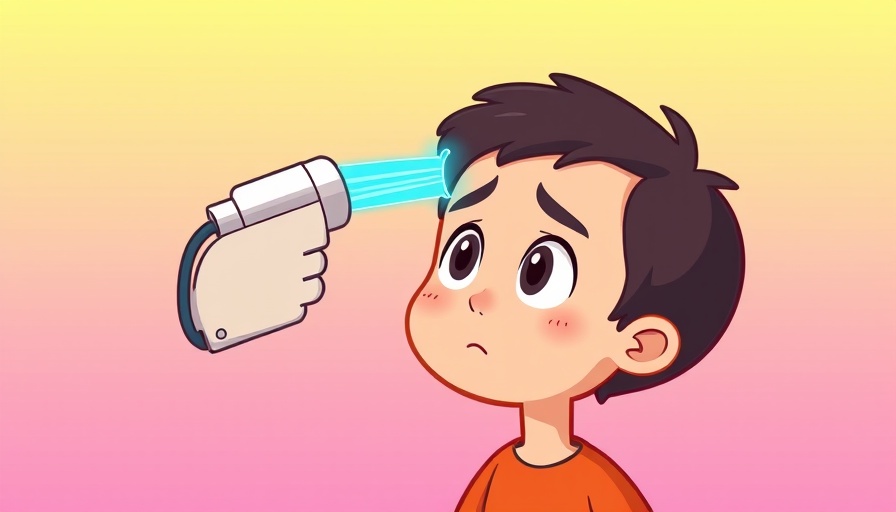
The Efficacy of Laser Therapy in Regrowing Hair
For many people struggling with hair loss, the option of laser therapy may seem unusual. The idea of using laser beams to stimulate hair regrowth may conjure doubts akin to those associated with sensational infomercials. However, emerging scientific research suggests that laser therapy can be a legitimate and effective treatment for hair loss. Understanding its mechanism, effectiveness, and suitability for different stages of hair loss will empower individuals seeking alternatives to traditional medications.
In 'Is Laser Therapy Effective For Hair Loss?', the discussion dives into the science behind laser therapy, exploring key insights that sparked deeper analysis on our end.
A Brief History of Laser Therapy for Hair Loss
The journey of laser therapy began in 1967 when a Hungarian physician observed that mice exposed to laser beams regrew their hair faster than those who were not. This initial finding paved the way for rigorous exploration into the therapeutic use of lasers for hair growth. Fast forward several decades, and we now see a market filled with laser devices specifically designed for hair loss treatment.
How Does Laser Therapy Work?
The underpinning theory behind laser hair therapy revolves around the idea that laser light can promote healing and rejuvenation at the cellular level. When a laser is directed toward the scalp, energy packets from the laser are absorbed by the surrounding cells of the hair follicles. This absorption is believed to enhance blood flow and stimulate cellular activity, which may result in hair regrowth.
Lasers utilized for hair loss typically operate at wavelengths between 650 to 660 nanometers, falling within the red spectrum of visible light. These devices use low power, usually around five milliwatts or less, making them safe for use on the scalp. Nevertheless, specific guidelines for duration and frequency of use differ among manufacturers, with treatment sessions recommended anywhere from ten to thirty minutes and typically administered daily or every other day.
What Do Clinical Trials Indicate?
To gauge the effectiveness of laser therapy, researchers conducted various randomized controlled trials, dividing participants into two groups: one received actual laser treatment while the other received a sham device. The encouraging outcome of these studies was that all trials reported improvements in hair growth among participants treated with actual laser devices. This includes both men and women, emphasizing that laser therapy can be beneficial across genders.
However, the response to therapy is not uniform among users. Research indicates that about two-thirds of trial participants experienced a mild to moderate response to the treatment, while a third reported significant improvement. Success rates tend to be higher for individuals experiencing early-stage hair loss as opposed to those with more advanced conditions.
Are There Limitations to Consider?
While the clinical results are promising, it's vital to recognize some limitations. Most studies analyzed had relatively small sample sizes and short durations, concluding treatment after just six months. As a result, long-term effects of laser therapy remain uncertain. Moreover, it is important to note that many of these studies were funded by the manufacturers of the laser devices, introducing potential bias into the results. Independent studies would lend greater credibility to the efficacy of laser hair therapy and reassure both patients and healthcare professionals.
Who Should Consider Laser Therapy?
Laser therapy presents a reasonable treatment option, particularly for those who prefer a non-medicated approach. It can be a standalone treatment but is often recommended as part of a combination treatment strategy for better results. Nonetheless, those considering laser therapy should be aware of the significant time commitment involved; continuous use is essential for sustained results, which may not justify the high upfront cost for some individuals.
Final Thoughts and Considerations
Individuals who are experiencing early-stage hair loss may find laser therapy a promising avenue worth exploring. As with any medical treatment, it’s prudent to consult with a hair loss expert to determine the most suitable options. The aesthetic and psychological impact of hair loss can dramatically affect self-esteem and quality of life; thus, finding an effective treatment becomes paramount. Have you tried laser therapy for hair loss? We invite you to share your experiences and insights in the comments below, creating a supportive dialogue for those considering this treatment option.
 Add Row
Add Row  Add
Add 




Write A Comment